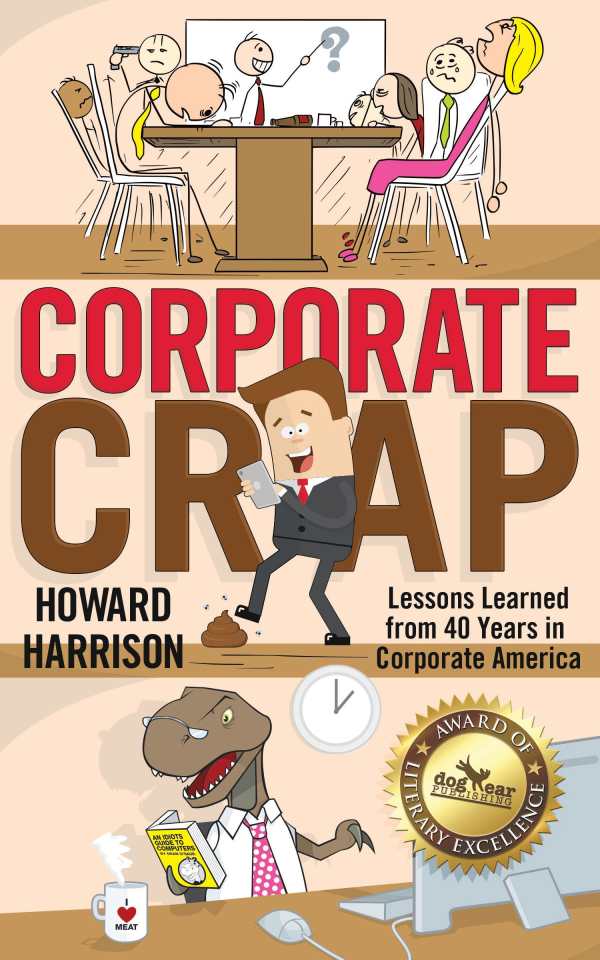
Corporate Crap
Lessons Learned from 40 Years in Corporate America
Smart and insightful, with a conversational style, Corporate Crap will be a breath of fresh air for former, current, and future corporate employees.
Howard Harrison’s witty memoir Corporate Crap dissects and ridicules the practices of corporations.
“Laugh at the nonsense if you can,” writes Howard Harrison, who spent forty years in the business world, the majority of them as a corporate communicator. Harrison has a keen eye for the absurd, and his book takes aim at corporations and skewers bosses, “onboarding,” office cubes, meetings, performance reviews, exit interviews, and more.
Each chapter addresses a discrete topic, and the chapter headings are clever and pointed. Harrison writes with complete candor and devilish wit, making the content engaging and amusing. He claims, for instance, that “my first true brush with Corporate Crap (besides having to dress each day like I was going to a wedding) was my exit interview.” He takes business managers to task for their corporate jargon, and an example of a former boss speaking in acronyms is downright hilarious.
Harrison’s text also makes serious and worthwhile observations about corporate practices, as in a chapter concerning performance reviews. As an employee of an accounting firm, Harrison received a stellar performance review around his two-year anniversary, only to be let go one week later because the firm hired a new person who “wanted to bring in his own people.” The chapter goes on to cite statistics showing that, while annual performance reviews are reviled as worthless, they are still widely used in corporate America.
Another astute observation concerns brainstorming and why people are not encouraged to think on their own prior to brainstorming sessions. “Decades of research,” writes Harrison, “have shown that group brainstorming sessions yield fewer ideas than when people work alone and pool their ideas.” Such observations are all the more powerful because Harrison draws on his own experiences and evaluates them with a critical eye.
A chapter regarding corporate hiring practices casts a particularly critical eye on corporations and hiring managers, who are said to need “to be able to judge a person’s character.” Such perceptive and well-stated observations are reinforced throughout their chapters, which raise provocative questions. Elsewhere, “mission, vision, and value” statements are derided as less valuable than the time that goes into conceiving of them. The book takes a brash but justified approach to dismissing such common corporate practices.
The book is short—a “small bites” approach to the subject that results in chapters that are less than substantive. Its organization is informal, without a table of contents, references, or an index, and the structure is missed.
Smart and insightful, with a conversational style, Corporate Crap will be a breath of fresh air for former, current, and future corporate employees.
Reviewed by
Barry Silverstein
Disclosure: This article is not an endorsement, but a review. The publisher of this book provided free copies of the book and paid a small fee to have their book reviewed by a professional reviewer. Foreword Reviews and Clarion Reviews make no guarantee that the publisher will receive a positive review. Foreword Magazine, Inc. is disclosing this in accordance with the Federal Trade Commission’s 16 CFR, Part 255.
